Iranian Religious Singer Shot Dead In Northwestern Iran
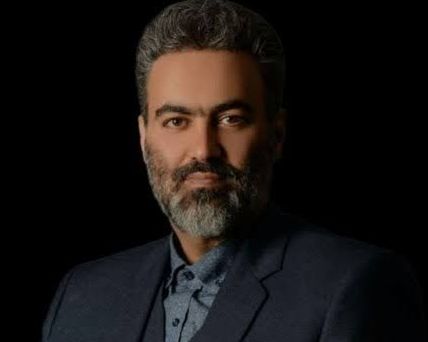
A famous Iranian religious singer – known in Iran as eulogists or maddah – has been shot dead in the northwestern city of Tabriz in East Azarbaijan province.

A famous Iranian religious singer – known in Iran as eulogists or maddah – has been shot dead in the northwestern city of Tabriz in East Azarbaijan province.
The body of Habil Afaq-Azar was found on Thursday with bullet wounds in one of the neighborhoods of the city. Apparently, he was killed somewhere else, and his body was dumped there.
Following the murder of Afaq-Azar, Mahmoud Hosseini, the director general of The Islamic advertisement Organization of East Azarbaijan, praised him as one best of “maddahs” of the city, who "had made numerous concert tours to Turkey and Azerbaijan."
No details about the killer(s) or the motivation of the assassination has been immediately available, but maddahs are usually affiliated with the regime and promote its propaganda in Iran and abroad.
Earlier in the month, Azerbaijan’s foreign ministry announced that 39 people were arrested in connection to an Iranian "espionage network" as part of a special operation to uncover subversive activities in the country “under the guise of religion”.
Under Supreme Leader Ali Khamenei, maddahs who used to sing tragic songs in graveyards for families of the deceased or chant tragic stories during the mourning month of Muharram to earn a living, are now the Islamic Republic’s political theoreticians, influential figures in political groups and government offices. They can put anybody’s business on fast track, albeit against a fee, using their influence as individuals close to Khamenei.
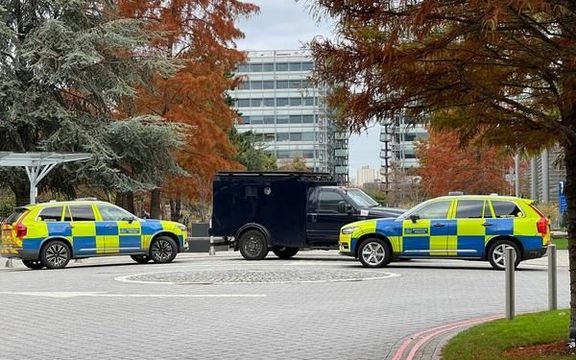
Britain's counter-terrorism police chief said on Thursday his officers are increasingly dealing with threats from hostile states such as Russia, China and Iran.
The announcement signaled a shift from focusing on Islamic extremism to dangers posed by adversarial states. The September 11, 2001, attacks on the United States and deadly incidents in Britain made tackling Islamist plots the priority for counter-terrorism police, with resources focused on the threat from home-grown and foreign-based militants.
Matt Jukes, the head of counter-terrorism at London's Metropolitan Police, said there has been a shift in emphasis as foreign states try to corrupt or intimidate people and are involved in murder and kidnap plots in Britain.
"The requirement for us to play a law enforcement part in countering the threats from hostile states is unprecedented," Jukes told reporters at New Scotland Yard, the Metropolitan Police's headquarters.
The police in London arrested a man last Saturday in the vicinity of Iran International’s headquarters at Chiswick Park and indicted him according to section 58 (1) (b) of the Terrorism Act 2000. He appeared to be surveying the office building where the network has its headquarters.
The suspect, Magomed-Husejn Dovtaev (Mohammad-Hussein Dovtaev), 30, an Austrian national, appeared at Westminster Magistrates’ Court on Tuesday and pleaded not guilty. The suspect's name in Russian spelling signals that he is originally from one of the former Soviet republics, more likely from a Muslim-majority country.
The incident came after the Metropolitan police warned the network in November of serious threats originating from Iran against its journalists and provided extra protection.
Iran has long engaged in terror plots against Iranian dissidents and journalists abroad, conducting intimidation, assassination and kidnapping operations.
Investigations involving state threats have quadrupled in the last the last two years and these cases now account for a fifth of counter terrorism officers' times, he said.
Iran has made at least 15 attempts to kidnap or even kill British nationals or individuals based in the United Kingdom regarded by Tehran as a threat, Jukes said.
Last year, British Foreign Secretary James Cleverly summoned Tehran's most senior diplomat over alleged threats by Iranian security forces to journalists in Britain.
The Iranian embassy in London did not immediately respond to a request for comment by Reuters.
Jukes said police were making inquiries after claims China last year was operating "police stations" in major cities around the world, including New York. China has denied the allegations.
Britain blamed Russia for a 2018 nerve agent attack targeting former Russian double agent Sergei Skripal and his daughter Yulia in Salisbury, southern England, a charge Moscow has denied. And this week a security guard at the British embassy in Berlin was in a London court accused of spying for Russia.
The Metropolitan Police's War Crimes Team, which is a unit within its counter-terrorism command, is also dealing with more than 100 referrals from Ukrainian refugees in Britain related to the war with Russia, he said.
Despite the shift in focus, counter-terrorism police's biggest job is still tackling terrorism. Jukes said police disrupted eight late-stage terror plots last year and in some cases they have been investigating children as young as 13.
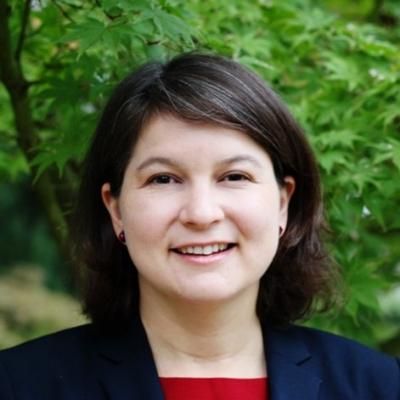
The Biden administration says it is concerned about the support countries like Iran and North Korea provide to Russia to supply embargoed goods like microchips.
Thea Candler, the Assistant Secretary of Commerce for Export Administration made the remarks in Tokyo on Thursday, adding that “Russia has turned to other countries, if you can imagine the partners of Iran and North Korea, to fill certain gaps in their purchases that have been created by the fact that our products are leaving the Russian market.”
“We know that Russia is using Iranian drones in Ukraine to kill civilians,” stressed Candler.
The G7 countries are discussing the imposition of sanctions on Iranian, Chinese and North Korean companies involved in the transfer of technology and chips to Russia. The G7 wants to coordinate a package of sanctions by February 24.
US media had previously reported that some American microcircuits were used in the structure of Iranian drones that were delivered to Russia.
Russia had previously said it would increase microchip production but reports in late 2022 indicated it had failed to achieve such goal.
Washington also insists that no US-made chips should be used in devices such as Chinese-made computers and smartphones.
Last month, China initiated a dispute against the US at the World Trade Organization over Washington’s sweeping semiconductor export curbs.
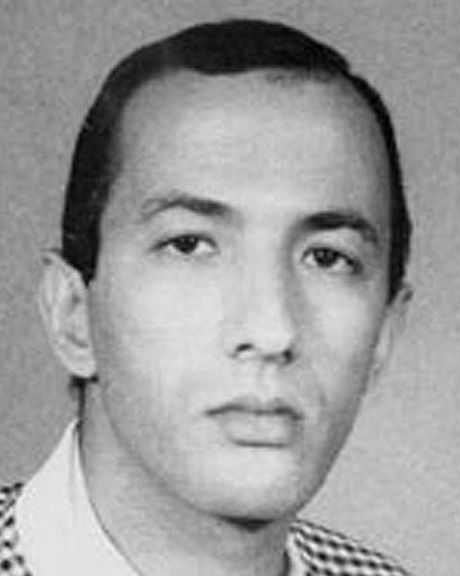
Iran denied US claims that Al Qaeda's leader Seif al-Adel is based in the country, foreign minister Hossein Amir-Abdollahian wrote on Twitter on Thursday.
Washington on Wednesday aligned itself with a UN statement placing Adel in Iran.
"I advise the officials of the White House to stop the failed game of Iran-phobia, making news about the leader of Al-Qaeda and linking him to Iran is laughable," Amir-Abdollahian wrote.
Seif al-Adel, a former Egyptian special forces officer who is a high-ranking member of al Qaeda with a $10 million US bounty on his head, is now the "uncontested" leader of the militant group, according to a new U.N. report on the organization.
The US State Department said Wednesday it aligned with UN assessments that Seif al-Adel is based in Iran.
Adel was indicted and charged in November 1998 by a US federal grand jury for his role in the bomb attacks on the US embassies in Tanzania and Kenya that killed 224 civilians and wounded more than 5,000 others.
Following the African bombings, the former Egyptian army lieutenant colonel moved to southeastern Iran, where he lived under the protection of the country's Islamic Revolutionary Guard Corp, according to the US State Department's Rewards for Justice program.
He and other Al Qaeda leaders were placed under house arrest in April 2003 by Iran, which released him and four others in exchange for an Iranian diplomat who was kidnapped in Yemen.
Report by Reuters
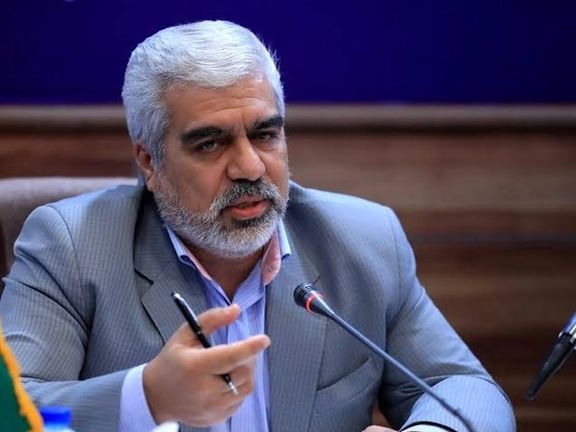
The journalists who reported a case of sexual abuse of several minors at a football school in northeastern Iran have been banned from work for six months.
The chief prosecutor of Iran's Khorasan Razavi province, Mohammad-Hossein Doroudi, still refrains from naming the club but according to reports the scandal took place at a sports school in the religious city of Mashhad called “Namazgozaran,” literally meaning the ones who pray. The number of arrested whistleblowers is more than the suspects in the case. He did not mention whether or when a court session took place for the case.
The two journalists who broke the news were banned from work for six months, which is exactly the sentence given to the coach, who is accused by the families of the boys of sexually abusing their children and – according to unconfirmed reports – filming them. Another journalist and an official of the city’s Sports and Youth Organization were also given sentences over the case.
The prosecutor has not elaborated on the case and the sentences, as is the norm in the Islamic Republic when the scandal is very big or when the accused are connected to high-ranking officials.
The prosecutor, who had earlier warned the families not to speak to the media, said, "According to the investigation, no document and proof of physical assault by the coach at this football school has been presented to the judicial system and nothing has been proven." But he did not explain why the caich was suspended for six months.
In January, Sports Minister Hamid Sadjadi said he had ordered an investigation following reports of sexual abuse. According to the Iranian official news agency, IRNA, a former media manager for the Shahr Khodro football team said on social media in January that the parents of 15 trainees from had filed a complaint against the club and coaches for sexual assault on their children.
The incident made it to the media when Shahrara daily, which is affiliated to Mashhad municipality, reported that “families of the children had gathered in front of the headquarters of the provincial football organization to protest this tragedy.” Since there was no follow-up by the authorities, the families were forced to publicize the case through the media, the daily added.
During a press conference late in January, Judiciary Spokesman Masoud Setayeshi, who was asked about the case, said, "We are investigating what is the motive for publishing such news."
Sexual abuse has made football schools a serious threat for children and teenagers. Reports say even some mothers of the children receive sexual offers from the coaches and officials of these schools.
Reza Torabian, a former football player, had earlier said that “Some officials of football schools ask the single moms to have sex in return for letting their kids play in famous teams.”
Sexual abuse of minors in football schools and other institutions is usually not reported by officials, but in the last two decades, Iranian media have published numerous reports of such cases.
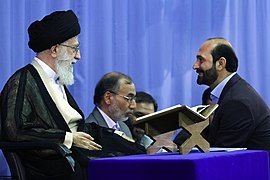
One of the cases that was internationally covered was the case of Supreme Leader’s "favorite Quran reciter" Saeed Toosi, who was accused of "sexually abusing underage trainees." In October 2016, reports revealed that Toosi sexually abused 19 of his prepubescent Quran students over the past years.
The Islamic Republic authorities usually prefer to detain journalists who spill the beans in scandalous cases, as they did in the case of Mahsa Amini’s death in hijab police custody, an event that triggered the ongoing antiregime protests. The current wave of rallies has been described as the boldest challenge against the clerical regime so far. In a new book, two Iranian academics argue that Iranians have lost trust in the regime, which is perceived as inefficient and mired in discriminatory behavior.

Canadian Journalists for Free Expression (CJFE) has presented its award to Niloufar Hamedi and Elahe Mohammadi, who have been imprisoned for five months, after publishing reports about the killing of Mahsa Amini in Iran.
The ceremony was held on Wednesday in Toronto, and Margaret Atwood, a Canadian writer and poet, presented the International Press Freedom Award to these two journalists in absentia.
Canadian Journalists for Free Expression supports those who show courage in seeking and reporting the truth.
For more than 40 years, the CJFE has championed free media and the role it plays in creating a just and equitable society. The organization supports and upholds the rights of all global citizens to hold leaders to account, to ask hard questions, and to use their voices to speak the truth.
Shahram Rafizadeh, an Iranian journalist, received the award on behalf of the two journalists symbolically.
While Hamedi and Mohammadi are imprisoned for first publishing reports about the death and funeral of Mahsa Amini, Iran’s Foreign Minister Hossein Amir-Abdollahian recently claimed in an interview with America’s National Public Radio that no journalist was arrested during Iran protests.
According to the latest reports by the Iranian Journalists Association, several reporters who were arrested at the beginning of the protests, are still in prison. In total, nearly 70 journalists were arrested.